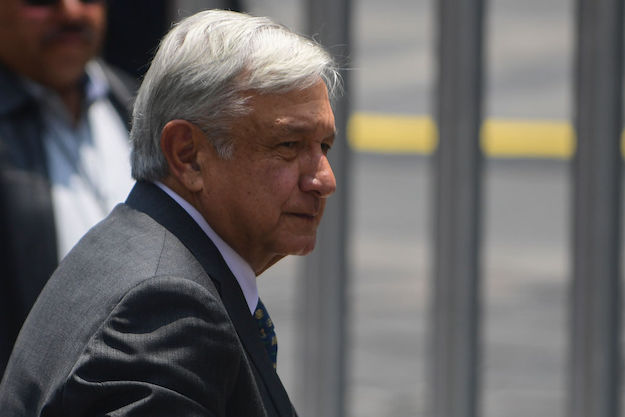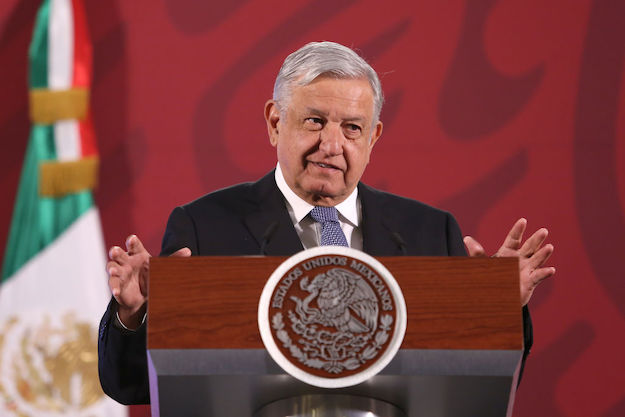Correction appended below
Highlight of the Week
AMLO’s plan to create a national guard to handle public security came with a damning indictment of Mexico’s police forces.
López Obrador said his strategy to reduce violence, unveiled Wednesday, would rely on continued military support due to a “lack of professionalism and integrity” in all levels of the police. Over the next three years, he’ll add 50,000 federal and military police to the new body, which will operate under military authority.
A survey released Monday by Mexico’s state statistics agency supports the president-elect’s blunt assessment of the police force. The report shows limited training and financial support for officers, and rampant corruption within the ranks. Over 30 percent of police officers polled said they didn’t earn enough to fully cover basic needs.
Criticism of the national guard plan, even from some supporters, overshadowed more progressive elements of AMLO’s security strategy, including a rethink on the war on drugs and reform of Mexico’s prison system. AMLO said he’d pursue a constitutional change to regulate the military’s role in security, even as the Supreme Court this week invalidated a law passed in 2017 by President Enrique Peña Nieto intended to do the same.
What they’re saying: Ernesto López Portillo points out a lack of empirical evidence to support the use of the military in public security; Genaro Lozano hosts a debate on the security plan; Catalina Pérez Correa on the legal history of the military in the streets.
Another Consulta
AMLO said he would hold a public vote on Nov. 24-25 to determine whether or not to move forward on several major initiatives proposed by his government.
The projects include a tourist train in the country’s southeast, a rail link between Mexico’s Pacific and Gulf coasts, construction of a new refinery in AMLO’s home state of Tabasco, and a package of social programs directed primarily at young people and seniors.
As with AMLO’s airport consultation in October, the coming vote will be organized by a private organization without backing from Mexico’s electoral authorities. The announcement came a day after protesters marched in Mexico City demanding an end to consultations to decide public policy issues.
What they’re saying: A look at AMLO’s early career sheds light on his penchant for participatory politics; Leo Zuckermann on Mexico’s economic risks.
Briefs
AMLO announced the creation of a business council that will include Ricardo Salinas, whose conglomerate owns TV Azteca, Bernardo Gómez, co-CEO at Televisa, and Carlos Hank González, of Banorte, among others.
Roberto del Cueto will step down as deputy governor of Mexico’s Central Bank, giving AMLO his second chance to appoint a member of the bank’s board. His first selection, announced in September, was Jonathan Heath.
Mexico’s Senate approved a bill to create a new attorney general’s office, meaning the position may be filled by the time AMLO takes office on Dec. 1. The bill was passed without civil society-backed reforms intended to ensure the independence of the new office.
The Lower House approved a measure to allow the president to create special investigative committees, opening the door to AMLO’s promised truth commission on the Ayotzinapa case.
Quote of the Week
“I no longer belong to me, I’m at the nation’s service.”
AMLO marked his 65th birthday Tuesday, asking “nature and the creator” to give him at least six more years of life so he can complete his term in office.
A previous version of this article misstated Ernesto López Portillo’s first name. AQ’s AMLO update returns Nov. 30.
—
Russell is AQ’s correspondent in Mexico City








